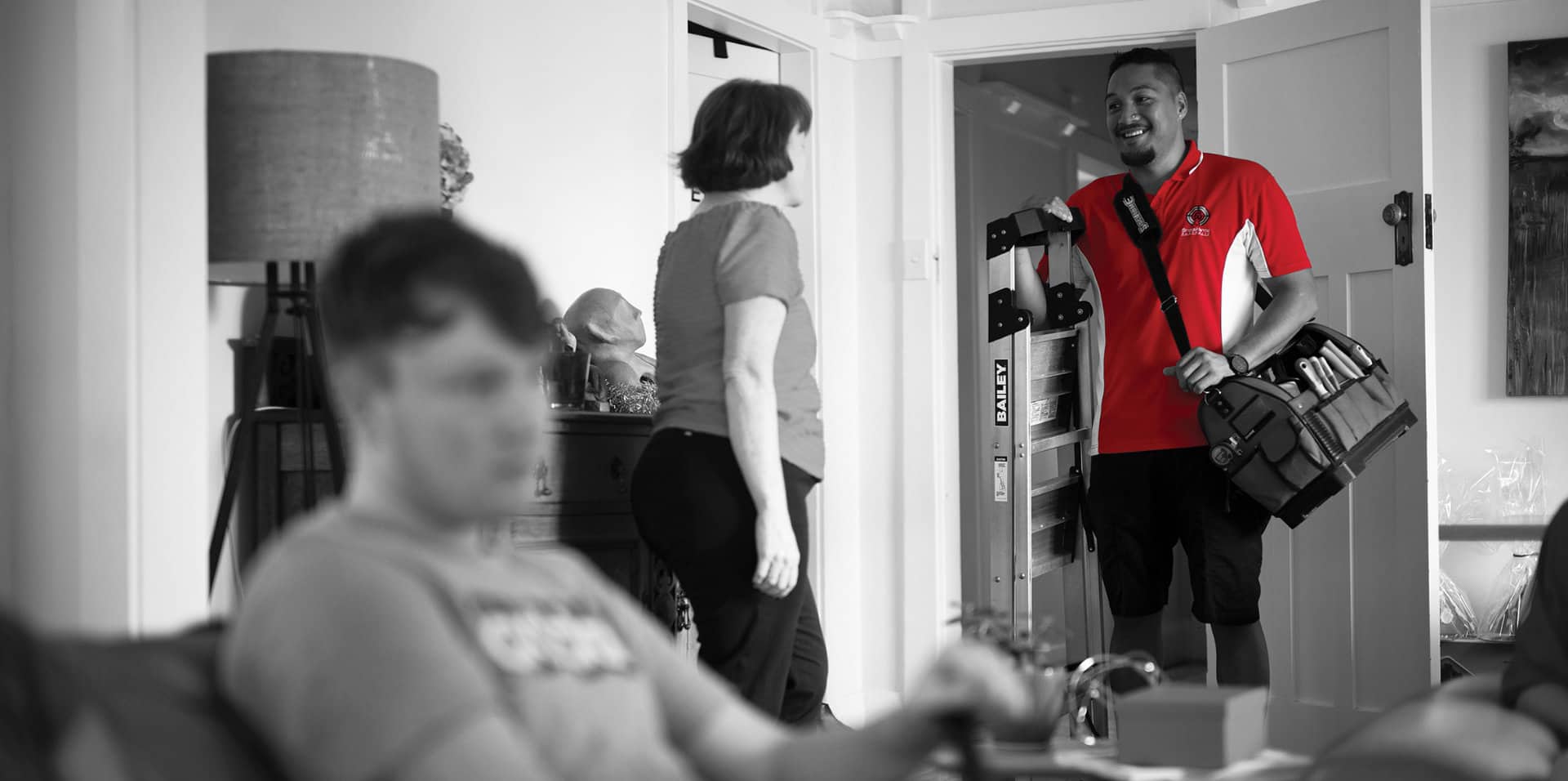
Yes - SAA has worked with its insurer, to not only cover workmanship but also product. This means that SAA takes responsibility for the workmanship and labour associated with its services, giving your landlords peace of mind, reducing potential financial risk. The benefit is, if, in the event of a critical failure attributed to an SAA installed alarm or battery, SAA maintains liability to cover damages to the value of $20M AUD.
SAA works with your agency to manage the risk associated with smoke alarms in your area. SAA has a range of tools that can help your agency understand its potential risk. Your BDM will work with you to show pockets of risk and then can help manage the process to increase your alarm coverage.
No matter how many alarms you need, the services have fixed flat pricing. SAA offers a transparent pricing structure. There are no hidden fees or extra costs at any point in the year unless extra hard-wired alarms need to be installed or are requested. In that case, they are $144 each, otherwise, it's our standard fee.
A subscription is inclusive of:
Landlords have responsibilities regarding smoke alarms. The new legislation in NSW regarding properties under strata are exempt from these regulations only if the owner’s corporation takes full responsibility for the repair and replacement of the alarms and the tenant has been provided with that information in writing. A copy of that report will also need to be held at your agency in case of dispute with the tenant.
Strata is responsible for ensuring that the property meets the requirements of the local council fire order for all units whether they are tenanted or not. Strata does not normally distinguish rental properties, to make them compliant to the building code and the residential tenancies act. They must ensure that there are enough alarms, in the right locations according to the building code or that each alarm is functioning at the change of tenancy.
SAA only install photoelectric smoke alarms – the type of alarm recommended by all Australian fire authorities. A mix of hard wired, battery, or RF alarms in QLD, will be used within your property depending on the layout and requirements of the Building Code of Australia.
The Building Code of Australia has some clear guidelines on where alarms need to be positioned. Sometimes alarms are installed in dead air space when they were first installed. This is an area where trapped air will prevent smoke from reaching the alarm. Alarms cannot be in dead air space. As the building code evolves there may be changes needed to where your smoke alarms are located.
Sometimes alarms are too close to the kitchen and if you have some smoke or excess steam coming from what you are cooking it will enter the chamber of the smoke alarm that detects smoke, and it will then set the alarm off. If the alarm goes off, the best thing you can do is to force air through the path of the alarm to clear it. You can do this by fanning the alarm. Do not use devices like hair dryers, heat guns or aerosol sprays to move the air as that could damage the alarm. If it continues to chirp contact us and we will get a technician back to re-assess it for you. If it continues to alarm, contact us and our team can help you disarm it.
One as a minimum. There is no hard and fast rule as to how many as it depends on the layout of the property and the state you live in. In QLD you need to have alarms in each bedroom, and they must be interconnected, so if one goes off, they all do. The rules for how many you have in other states depend on the layout of the property.
Our office is open from 8:30am to 7:00pm AEST, Monday to Friday and 8:30am to 12:00 noon on Saturdays. Our technicians are booked from 6:30am to 5:00pm weekdays with some availability on Saturdays depending on your area.
All rental properties are required by law to have working smoke alarms. This means they need to be tested at least once per year, so that if there is a fire, they alert you or your family to take-action. They also should have the batteries replaced annually and make sure there is nothing that is obstructing the laser in the alarm.
Yes. We have an industry-leading service for beeping alarms. Tenants can contact us directly on a property registered with SAA. Inside business hours you can simply call our customer service team. Outside business hours, we have a dedicated line that you can call to get help on silencing a beeping alarm. In either instance, we work to troubleshoot, and if unable to resolve, we will send a technician as soon as possible.
Different alarm types have different battery life. Some alarms have a 10-year lithium battery which means if the alarm does not pass the function test, it would be replaced. If your alarm is a hard-wired or battery alarm, battery life varies which is why we replace batteries every year.
If your alarm is a battery alarm, the alarm may chirp every minute or so for about 20 minutes, then it will generally stop. Some alarms have a 10-year lithium battery, which means it cannot be replaced. If the lithium alarm does not respond to the testing process, your whole alarm is replaced. If your alarm is hard-wired the battery is there to provide backup in case, there is no power. This means if the power is cut, the alarm will still sound alerting your family.